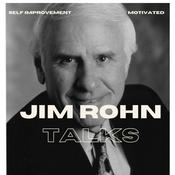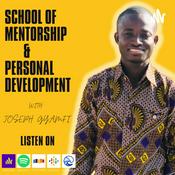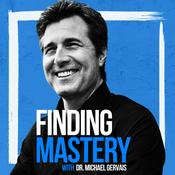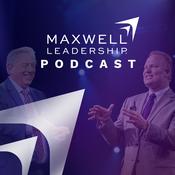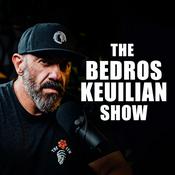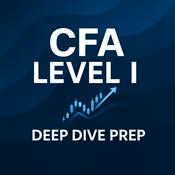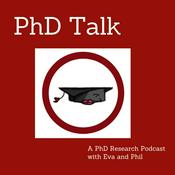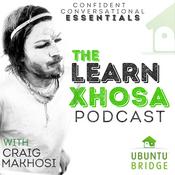The ABA Speech Podcast- Easy Strategies for Speech Therapists, BCBAs, and RBTs
Rose Griffin
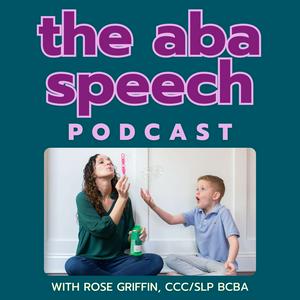
Latest episode
270 episodes
- Starting your own practice does not have to mean doing it all alone.
In today’s episode, I sat down with Bukhtar Khan, co-founder and CEO of Finni Health, to talk honestly about what it really looks like to start and grow an independent ABA practice. We talked about the fears BCBAs often have around finances, insurance, staffing, and burnout, and how Finni Health is built to support clinicians who want autonomy without sacrificing stability or ethics.
Bukhtar shares the heart behind Finni Health and why their work is so focused on reducing stress for clinicians, protecting quality care, and helping providers build sustainable practices that align with their “why.” If you have ever thought about starting your own clinic but felt overwhelmed by the logistics, this conversation will give you clarity, reassurance, and a realistic look at what support can look like.
#autism #speechtherapy
What’s Inside:
The most common concerns BCBAs have about starting their own practice
How Finni Health supports clinicians with operations, billing, staffing, and compliance
The balance between entrepreneurship and financial security
Why knowing your “why” matters more than knowing every step
Mentioned In This Episode:
Finni Health
Earn CEUs with a community of peers. Join the ABA Speech Connection
ABA Speech: Home - Stepping into your first leadership role can feel overwhelming, and navigating autism services as a parent can feel even harder, even when you’re already in the field.
In this episode, I sat down with Rayni McMahon for a powerful conversation about leadership, advocacy, and what happens when your professional world and personal life collide. We talked about what it really feels like to move from clinician to administrator, why so many professionals feel unprepared for leadership roles, and the one thing that can make that transition feel more manageable. Rayni shared practical, honest insights about mentorship, managing people, setting boundaries, and learning to lead with both confidence and compassion.
We also spent time talking about advocacy from a deeply personal lens. Rayni opened up about her experience as a BCBA navigating the system as a parent of an autistic child and how being “in the know” did not make accessing services easier. Her perspective highlights just how complex and exhausting the system can be, even for professionals, and why empathy, persistence, and advocacy matter so much for families.
This conversation is thoughtful, relatable, and full of takeaways for anyone who is stepping into leadership, supporting teams, or advocating for children and families within our field.
#autism #speechtherapy
What’s Inside:
How to navigate the transition from clinician to leader without burning out
Why mentorship and leadership support are critical in growing organizations
The realities of advocating for autism services, even as a professional
Lessons on balancing leadership, boundaries, and empathy
Mentioned In This Episode:
Virtue Healthcare Consulting
Rayni Brindley McMahon on LinkedIn
Earn CEUs with a community of peers. Join the ABA Speech Connection
ABA Speech: Home - Prompting AAC is abuse? Let’s talk about that and a few other AAC conversations that keep coming up again and again.
In today’s solo episode, I’m diving into five hot topics in AAC that have been surfacing repeatedly in my recent calls, trainings, and collaboration meetings. After more than 20 years as a speech therapist and being dually certified as a BCBA, I’ve seen how confusing, overwhelming, and sometimes divisive AAC conversations can become. I also remember very clearly when AAC felt intimidating to me too.
This episode is about cutting through the noise, grounding ourselves in research, and having better, more collaborative conversations about AAC. I share real scenarios clinicians are facing right now, from AAC evaluations that drag on far too long to device access barriers to strong opinions about prompting that simply don’t align with the science. My goal is to help you feel more confident, more informed, and better equipped to advocate for your students and clients.
Whether you’re newer to AAC or have years of experience, these topics matter. AAC is a student’s voice, and we have a responsibility to protect, support, and expand it in thoughtful, ethical ways.
#autism #speechtherapy
What’s Inside:
Why AAC evaluations should be thorough, but not take nine months, and what may be going wrong when they do
How to approach parent-purchased devices, including those bought online, with collaboration instead of fear
The ongoing core versus fringe vocabulary debate, and why research supports using both
Why prompting is a teaching tool, not abuse, and how misinformation can harm collaboration and progress
Mentioned In This Episode:
Earn CEUs with a community of peers. Join the ABA Speech Connection
Take the All About AAC bundle
ABA Speech: Home #264: Fostering Belonging In Autistic Individuals with Kathleen Dyer, Anna Linnehan & Mary Jane Weiss
2026/1/20 | 29 mins.In this episode, I had the absolute pleasure of welcoming Dr. Kathleen Dyer, Dr. Anna Linnehan, and Dr. Mary Jane Weiss for a powerful conversation around their article Fostering Belonging in Autistic Individuals. This was actually the first time I’ve had three guests on the podcast at once, and it felt like the perfect conversation to mark that milestone.
We spent time unpacking the difference between inclusion and true belonging and why simply being “in the room” does not always mean someone feels connected or accepted. As behavior analysts and speech-language pathologists, we’ve made incredible progress with access, inclusion, and participation, but this conversation challenged us to take a deeper look at the quality of those experiences.
We talked about what happens when autistic individuals are included but don’t feel they belong, the emotional toll of masking and camouflaging, and the very real systemic barriers that still exist for autistic adults. I also loved hearing how this work grew from their experiences in higher education and from listening closely to autistic individuals and families who shared that they often had to create their own communities.
What really stood out to me was how much this conversation aligns with compassionate, individualized care. Belonging looks different for everyone, and if we’re not asking about it, observing it, and building it into our assessments and interventions, we’re missing something essential. This episode felt like an invitation for our field to stretch, reflect, and evolve, and I’m so grateful to these three leaders for helping start that dialogue.
#autism #speechtherapy
What’s Inside:
The difference between inclusion and true belonging, and why access alone is not enough
How masking and camouflaging impact mental health and long-term well-being
Barriers autistic adults face in education, employment, and community participation
Practical ways clinicians can keep belonging at the center of assessment and intervention
Mentioned In This Episode:
Earn CEUs with a community of peers. Join the ABA Speech Connection
Get the book Perspectives on Neurodiversity and Belonging
ABA Speech: Home- In today’s episode, I sat down with Nafisa Obi to talk about what it really looks like to bring speech therapy, occupational therapy, and ABA together under one roof. Nafisa shared her journey from starting a small speech therapy practice to co-founding Essential Speech and ABA Therapy, which has grown into a nationwide franchise model focused on early intervention and true interdisciplinary collaboration.
We talked honestly about the realities of private practice ownership, the challenges of adding ABA to an existing SLP practice, and why understanding your “why” matters so much when you’re building services that impact families. Nafisa walked us through how her team recognized a gap in care, leaned into collaboration instead of competition, and built a model that prioritizes children, families, and ethical growth.
This conversation is especially powerful if you’re an SLP, OT, BCBA, or practice owner who feels the pull to do more for your clients but isn’t sure where to start. Nafisa’s story is a reminder that thoughtful, family-centered care and sustainable business practices can exist together, and that collaboration truly changes outcomes.
#autism #speechtherapy
What’s Inside:
How Essential Speech and ABA Therapy evolved from a speech-only clinic into a fully collaborative SLP, OT, and ABA model
What SLPs need to consider when adding ABA services, from staffing and billing to company culture
Why true interdisciplinary collaboration improves outcomes for autistic children and their families
How franchising became a way to responsibly expand access to ethical, high-quality autism care
Mentioned In This Episode:
Essential Speech and ABA Therapy
Nafisa Obi on LinkedIn
Join the ABA Speech Connection
ABA Speech: Home
More Education podcasts
Trending Education podcasts
About The ABA Speech Podcast- Easy Strategies for Speech Therapists, BCBAs, and RBTs
Join Rose Griffin, a dedicated Speech Therapist and BCBA from ABA SPEECH, as she shares her compassionate approach to supporting the communication needs of autistic individuals. With 20 years of experience, Rose is committed to respecting and understanding the diverse ways autistic people communicate and interact with the world.This podcast is a resource for professionals and parents alike, offering practical strategies that honor each person's unique communication style. Rose covers a wide range of topics, including how to recognize and support autistic communication from an early age, the distinctions between autism and speech differences, and effective, respectful approaches to fostering communication, whether a child is non-speaking, minimally speaking, or verbal.Through a mix of interviews and solo episodes, Rose explores how to enhance meaningful connections, address challenges with empathy, and celebrate the strengths of autistic individuals. Whether you're a parent, therapist, or educator, you'll find valuable insights and actionable advice to create supportive environments that empower communication and honor neurodiversity.Hit subscribe and learn more at www.abaspeech.org.
Podcast websiteListen to The ABA Speech Podcast- Easy Strategies for Speech Therapists, BCBAs, and RBTs, SOLVED with Mark Manson and many other podcasts from around the world with the radio.net app

Get the free radio.net app
- Stations and podcasts to bookmark
- Stream via Wi-Fi or Bluetooth
- Supports Carplay & Android Auto
- Many other app features
Get the free radio.net app
- Stations and podcasts to bookmark
- Stream via Wi-Fi or Bluetooth
- Supports Carplay & Android Auto
- Many other app features


The ABA Speech Podcast- Easy Strategies for Speech Therapists, BCBAs, and RBTs
Scan code,
download the app,
start listening.
download the app,
start listening.









